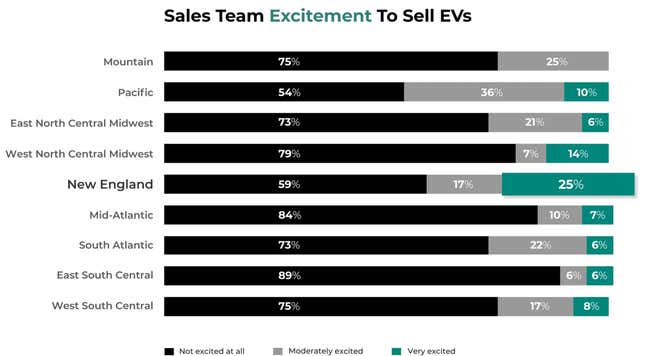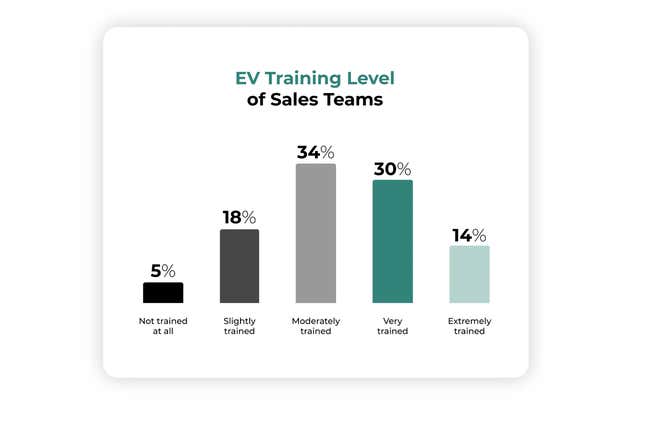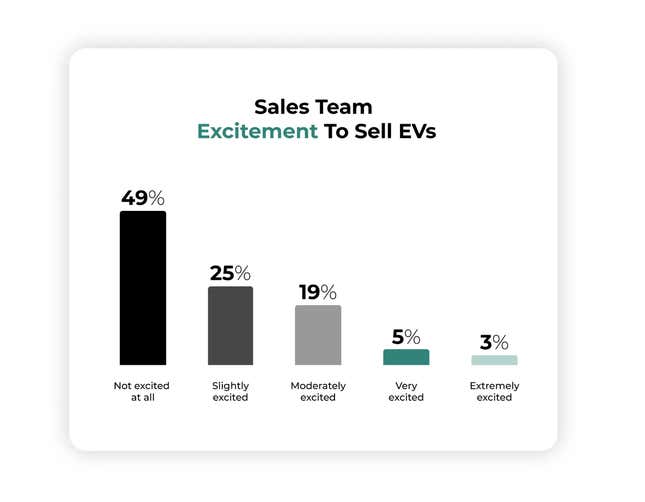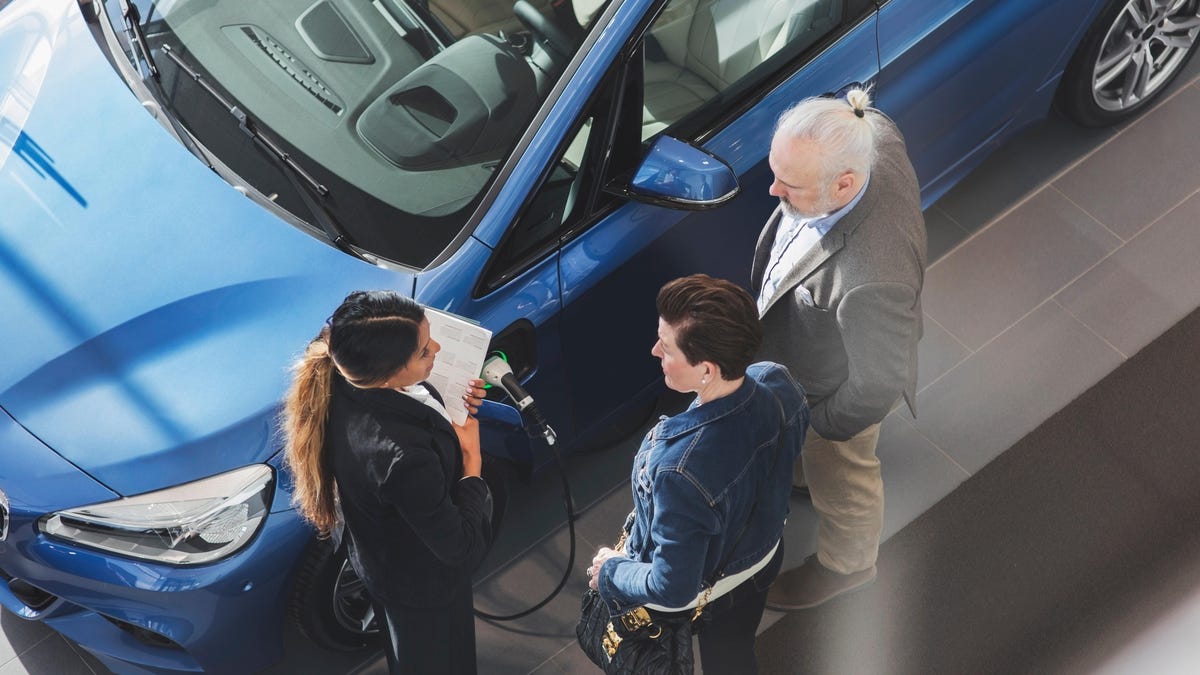Right now, electric vehicle sales are hitting a bit of a slowdown. Don’t get me wrong, the market is growing, but it’s not growing as fast as some may have predicted. We know automakers (for the most part) want to build EVs, and we know customers (for the most part) want to buy EVs, but what about the third party here: car dealerships? Do they want to sell EVs? Well, like so many other things it depends on where they are in the country.
A new survey of 250 “dealership leaders” from CDK Global is shedding light on just how excited dealers are to be selling electric vehicles, and as it turns out, the general mood is “not at all” with a few smatterings of “slightly excited.” In total, 49 percent of the respondents to the survey said their sales teams weren’t excited about selling EVs. That has to be worrying for automakers who want to get the cars they’ve invested billions in out the door.

However, it’s not the same story all over the country. Depending on where the dealer is located, enthusiasm varies greatly. For example, 46 percent of dealers in the Pacific region said their sales staff were moderately to very excited to sell EVs. Meanwhile, just 25 percent of respondents could say the same in the nearby Mountain states. Sort of unsurprisingly, the most pessimistic region was East South Central, with only 12 percent of dealers in Alabama, Mississippi, Tennessee and Kentucky saying their staffs were at least moderately excited to sell electric vehicles.
Here’s why dealerships outside of places that are traditionally EV-friendly just are not that excited to sell the damn things. From CDK Global:
Many concerns come down to simple geography. Whether due to extreme swings in temperature, mountainous terrain or long distances between communities, dealers in large swaths of the country have significant reservations about selling EVs.
One dealer in Montana put it bluntly, “We live in a rural area with large distances between towns … It’s just not a viable alternative to ICE.”
Another dealer in North Dakota pointed to the arctic climate as the kiss of death for EVs. “It’s primarily a range issue, which is always compromised when the heater is on full blast. If someone had to pull off the interstate due to inclement weather, they’d freeze to death at a rest stop.”

A lot of this hesitation in selling EVs also comes down to people’s lack of understanding of them. Dealers just do not know that much about EVs, so they’re slow to want to sell them. CDK says that just 44 percent of the responding dealers were either “Very trained” or “extremely trained in EVs. That means more than half of them barely know anything about the cars they’re tasked with selling. It’s not a winning recipe.
Sales staff training was significantly high in New England, for example, with more than eight out of 10 (83%) very or extremely trained. And New England ranked first (25%) when it came to being very excited about selling EVs. The East South Central region, which was last in excitement over selling, reported only 24% of salespeople were very or extremely trained.
It’s difficult to make a direct correlation, but it does seem that training salespeople on EVs translates to more passion for selling these vehicles.

These dealers really better shape up, man, because EVs are coming whether they like it or not. CDK asserts that a second – significant – wave of shoppers will be ready to buy EVs in the second half of this decade, and that’s coming up rather quickly.
Here’s what CDK says these dealerships and their salespeople need to do in order to get ready:
Salespeople first need to understand how the technology works; the benefits of their OEM-specific vehicles; how to navigate tax incentives, range, charging options and maintenance details. Customers will have questions, and a CDK study of current EV owners shows that it’s the salesperson who they trust to provide answers.
Salespeople first need to understand how the technology works; the benefits of their OEM-specific vehicles; how to navigate tax incentives, range, charging options and maintenance details. Customers will have questions, and a CDK study of current EV owners shows that it’s the salesperson who they trust to provide answers.
Sure, right now EV ownership and buying is fairly localized, but as more of these cars hit the market and become more capable, people in all different regions of the country are going to want them. It’s on the dealers to be ready for them, because that’s how our Godforsaken car-buying system works in the U.S.


